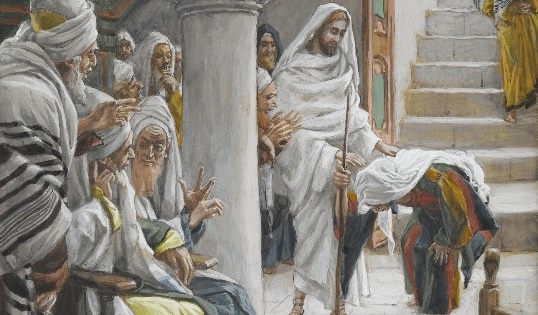
Sunday Sabbatharian Problem Texts, Part 3
According to the 1647’s Westminster Confession of Faith and the 1689’s London Baptist Confession of Faith, Sabbath observance is a positive, moral and perpetual command binding all men in all ages but then says from Creation to Christ it was on the Seventh Day but changed into the First Day of the week from Christ to Consummation.
“As it is the law of nature, that, in general, a due proportion of time be set apart for the worship of God; so, in His Word, by a positive, moral, and perpetual commandment binding all men in all ages, He hath particularly appointed one day in seven, for a Sabbath, to be kept holy unto Him: which, from the beginning of the world to the resurrection of Christ, was the last day of the week, and, from the resurrection of Christ, was changed into the first day of the week, which, in Scripture, is called the Lord’s Day ; and is to be continued to the end of the world, as the Christian Sabbath”
From Sabbatharians to Sunday Sabbatharians, how do they explain the following problem texts? Their problem texts?
Romans 14:5-6
Galatians 4:9-11
Colossians 2:16-17
Unless otherwise stated, all Scripture quotes are from the New International Version, 2011.
Part 3 – Dealing with Colossians 2:16-17
“Therefore do not let anyone judge you by what you eat or drink, or with regard to a religious festival, a New Moon celebration or a Sabbath day. These are a shadow of the things that were to come; the reality, however, is found in Christ.”
Colossians 2:16-17
According to Sunday Sabbatharians, what Paul is addressing here are the combined ceremonial law and Jewish cultism leading the believers in Colossians astray who are then passing judgment upon other believers and not the weekly Sabbath.
But then again, like in the other problem texts, we find them conveniently glossing over the text. While it says “Do not let anyone judge you by what you eat or drink, or with regard to a religious festival, a New Moon celebration or a Sabbath day,” they read it as if it merely says, “Do not let anyone judge you by what you eat or drink, or with regard to a religious festival, a New Moon celebration [snipped].”
Sabbath day is definitely included here, especially in the way the NIV translated it. Even the English Standard Version (ESV) 2016 renders it, “a Sabbath”, and the King James Version (KJV) 1611 has it, “the sabbath”.
And just a few verses before the text, in verses 13-14 Paul writes, “When you were dead in your sins and in the uncircumcision of your flesh, God made you alive with Christ. He forgave us all our sins, having canceled the charge of our legal indebtedness, which stood against us and condemned us; he has taken it away, nailing it to the cross. (Col. 2:13-14). The charge of legal indebtedness (legal demands in ESV) refers to no other than the Mosaic Law where we will find the handwriting of ordinances (KJV) that stood against those who break them are said to be cancelled, or blotted and nailed on the cross (Col. 2:14-15 c.f. Eph. 2:14-16).
Furthermore, Paul calls them “shadow of things that were to come,” a prefiguring of something, a type fulfilled in Christ.
Just like how Paul exhorted believers in Galatia, he now exhorts believers in Colosae to stand firm in the Gospel (Col. 1:23 c.f. Gal. 2:5) and to not to be enticed (Col. 2:4 c.f. Gal. 1:6; 3:1) by useless philosophy (Col. 2:4 c.f. Gal. 4:9) who are judging people with special days like Sabbath, months like New Moon, and seasons and years like Religious Festivals (Col. 2:16 c.f. Gal. 4:10).
Sabbath observance, as a shadow of Christ, already lived its usefulness. God provided something better. The people of God are no longer called to find rest on certain days but on a specific person. The people of God do not enjoy their rest only on a weekly basis anymore, but do so perpetually in their Lord and Savior, Jesus Christ.
“Come to me, all you who are weary and burdened, and I will give you rest.”
Matthew 11:28

Recent Comments